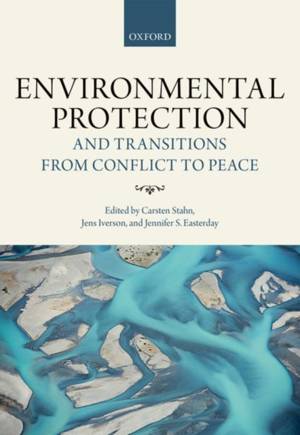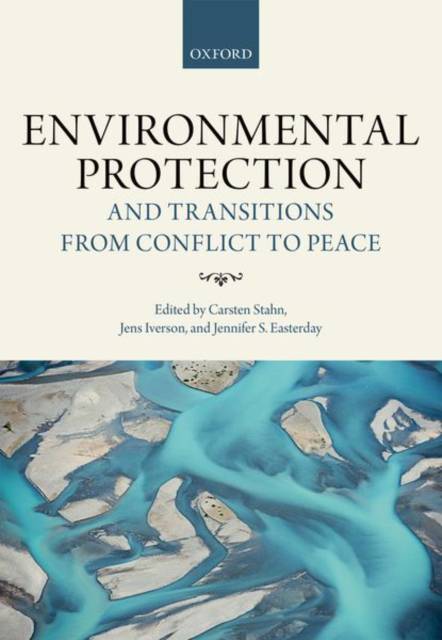
- Retrait gratuit dans votre magasin Club
- 7.000.000 titres dans notre catalogue
- Payer en toute sécurité
- Toujours un magasin près de chez vous
- Retrait gratuit dans votre magasin Club
- 7.000.000 titres dans notre catalogue
- Payer en toute sécurité
- Toujours un magasin près de chez vous
Environmental Protection and Transitions from Conflict to Peace
Clarifying Norms, Principles, and Practices
Carsten Stahn
Livre relié | Anglais
209,45 €
+ 418 points
Description
This is an open access title available under the terms of a CC BY-NC-ND 4.0 International licence. It is free to read at Oxford Scholarship Online and offered as a free PDF download from OUP and selected open access locations. Environmental protection is fundamental for the establishment of sustainable peace. Applying traditional legal approaches to protection raises particular challenges during the transition from conflict to peace. In the jus post bellum context, protection of the environment and natural resources needs to be considered in tandem with a broad range of simultaneously applicable normative frameworks, such as human rights, transitional justice, arms control/disarmament, UN law and practice, development, and domestic law. While certain multilateral environment agreements, such as the Convention Concerning the Protection of the World Cultural and Natural Heritage protect the environment; international humanitarian law and international criminal law continue to treat environmental protection largely from an anthropocentric perspective. This book is the first targeted work in the legal literature that investigates environmental challenges in the aftermath of conflict. Addressing these challenges, it brings together academics, policy-makers, and practitioners from different disciplines to clarify policies and practices of environmental protection and key normative frameworks. It draws on experiences and practices in post-conflict settings to specify substantive principles and techniques to remedy and prevent harm.
Spécifications
Parties prenantes
- Auteur(s) :
- Editeur:
Contenu
- Nombre de pages :
- 512
- Langue:
- Anglais
Caractéristiques
- EAN:
- 9780198784630
- Date de parution :
- 05-12-17
- Format:
- Livre relié
- Format numérique:
- Genaaid
- Dimensions :
- 173 mm x 249 mm
- Poids :
- 1079 g







